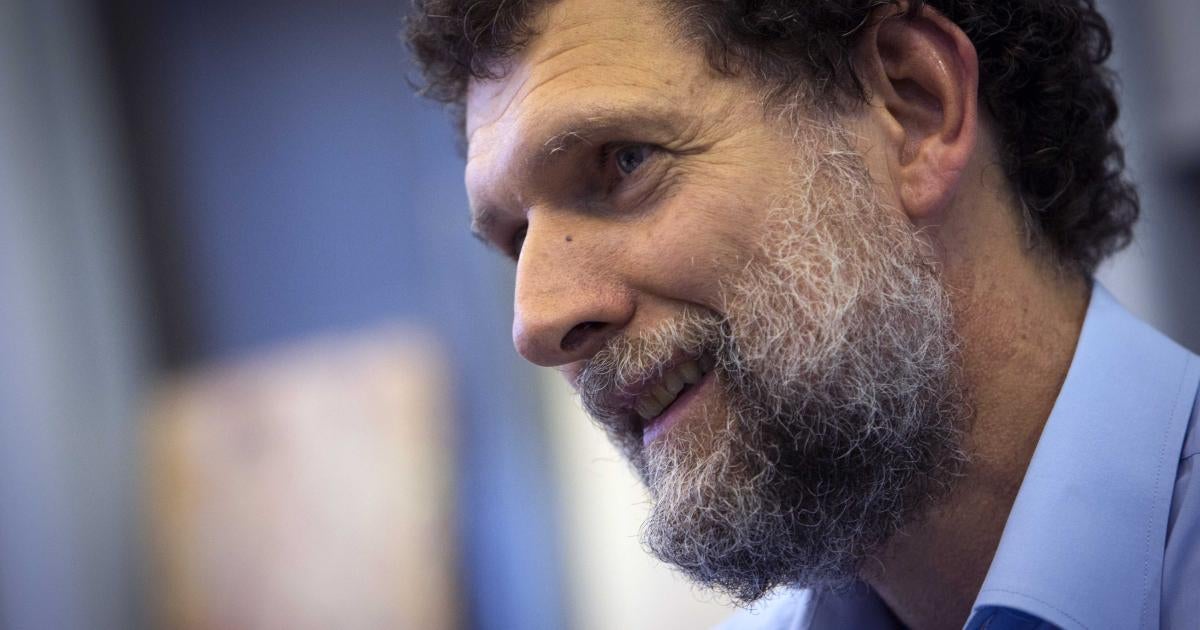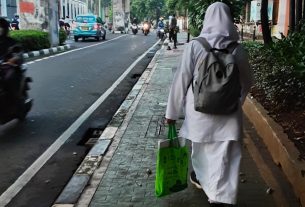(Istanbul, July 12, 2023) – An opinion by a prosecutor at Turkey’s top court of appeal asking the court to uphold the conviction of jailed rights defender Osman Kavala and his codefendants in the Gezi trial is completely devoid of legal reasoning and perpetuates a deep injustice, Human Rights Watch said today.
The prosecutor’s opinion on the case currently before the Court of Cassation comes fifteen months after an Istanbul court convicted Kavala and seven others on baseless charges of attempting to overthrow the Turkish government for their alleged role in the 2013 Gezi Park protests, mass demonstrations which began over an urban development plan in central Istanbul and spread to other cities in Turkey. The prosecutor’s opinion disregards two binding judgments of the European Court of Human Rights ordering Kavala’s release and entirely discrediting the evidence presented in the trial, and the ongoing Council of Europe infringement process against Turkey over the case.
“The Gezi trial is a mockery of justice and exemplifies Turkey’s rule of law and human rights crisis,” said Hugh Williamson, Europe and Central Asia director at Human Rights Watch. “The gross misuse of criminal charges and prolonged detention to hound perceived critics of the Erdoğan government has become the number one form of political persecution in Turkey today.”
The July 7, 2023 opinion by Court of Cassation deputy chief prosecutor, Zafer Şahin, recommends that the Court of Cassation’s 3rd Criminal Chamber should uphold Kavala’s April 25, 2022 conviction by the Istanbul 13th Assize Court and a sentence of life imprisonment without parole.
The opinion also recommends upholding 18-year sentences for Can Atalay, lawyer and elected member of parliament; Tayfun Kahraman, a city planner and academic; Çiğdem Mater, a filmmaker; Mine Özerden, a rights defender; Hakan Altınay, an educator; and Yiğit Ekmekçi, founder of a university and a businessman. It recommends quashing the 18-year sentence for architect Mücella Yapıcı.
The Court of Cassation’s 3rd Criminal Chamber will review the case in the coming months and issue a verdict on whether to approve or quash the convictions, though the timing of that decision is not known.
Prosecutor Şahin’s 77-page opinion relies on the rambling conspiracy theory, unsupported assertions, and information concerning the defendants from the original February 19, 2019 657-page indictment, which the European Court of Human Rights deemed irrelevant and insufficient to establish reasonable grounds for prosecution, Human Rights Watch said. The prosecutor summarizes a mass of wiretap conversations between defendants and others, the significance of which is not explained. It includes generalized assertions about civil disobedience movements around the world deemed relevant to the Gezi Park protests, and some information about Kavala and others’ involvement with the now closed Open Society Foundation (Açık Toplum Vakfı) in Turkey and Anadolu Kültür, an arts and culture civic group.
To this existing material from the indictment, the prosecutor offers further abstract reflections on what constitutes criminal intent and unsubstantiated and speculative views about civil society organizations, the nature of human societies, the state, and other themes. He cites as sources books by writers as diverse as fourteenth-century philosopher Ibn Haldun, Turkey’s founder Mustafa Kemal Atatürk, US psychologist Abraham Maslow, and Turkish writers who have written books promoting views that Western countries seek to instrumentalize civil society to create division in Turkey. Additionally, he includes elements of court orders and legal texts, taken out of context. The prosecutor fails to show how these sources would be relevant to the criminal prosecution of Kavala and the other defendants. The inclusion in his opinion, especially in the absence of any evidence whatsoever of criminal conduct, further supports the European Court of Human Rights’ finding that the main motivation in the Gezi trial has been political, Human Rights Watch said.
The prosecutor also opposes the release of Atalay, who was elected member of parliament from the Workers’ Party of Turkey in the country’s May 14 parliamentary election. Turkey’s Constitution and case law from the Constitutional Court clearly provide that Atalay should be able to benefit from parliamentary immunity and be released from prison to take up his parliamentary seat. The Turkish authorities have blocked his release despite demands that his election requires it.
“When prosecutors and courts rely on conspiracy theory and abstract assertions instead of examining the evidence in relation to the alleged crime, they violate the most basic principles of criminal law,” Williamson said. “The Gezi trial bears the hallmarks of a political show trial from start to finish. The defendants should be acquitted of all charges and immediately and unconditionally released to end the huge injustice and pave the way for a new approach in which the Turkish government ceases to use detention and criminal proceedings as instruments of repression.”



